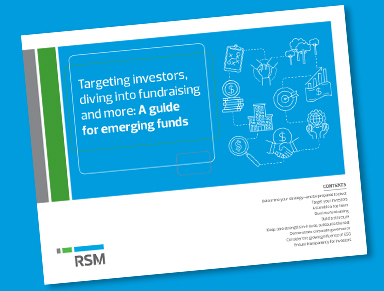Determine your strategy and be prepared to pivot. Flexibility is critical for emerging managers.
Key takeaways
Tax perspectives should be considered when targeting real estate investor groups.
Fund managers who use niche strategies will emerge as winners.
Outsource to elevate operations. Handling everything in-house can be a waste of precious resources.
At the start of the pandemic, commercial real estate investors were waiting on the sidelines, eager for the opportunity to dive back into the market.
Today, as interest rate hikes and inflationary pressures signal a potential looming recession, real estate investors are re-evaluating valuations and strategies. Risk profiles are changing, as available capital targets less risky, value-add, core and core-plus assets, while backing off from opportunistic and debt funds, which can have more unknowns.
Against this backdrop, real estate investors are being more selective when searching for the best funds to trust with their capital.
Starting a new fund is not as simple as putting together a team and courting interested parties. It is a complex, multistep process that requires consideration of many important factors before the first round of fundraising kicks off. Whether you’re an emerging fund or a seasoned professional, you need a solid framework in order to be a successful fund in today’s environment.

Fundraising in a challenging economy requires significant due diligence and careful planning to mitigate risk.
Green and his colleagues at RSM often get questions from clients—those just starting out in emerging funds as well as seasoned professionals—about best practices for putting together a successful fund. The RSM team has put together a guide for emerging real estate funds.
In this guide you will discover how to:
- Determine your strategy—and be prepared to pivot
- Target your investors
- Dive into fundraising
- Build a structure
- Keep core strengths in-house, outsource the rest
- Demonstrate corporate governance
- Consider the growing influence of ESG
- Ensure transparency for investors


